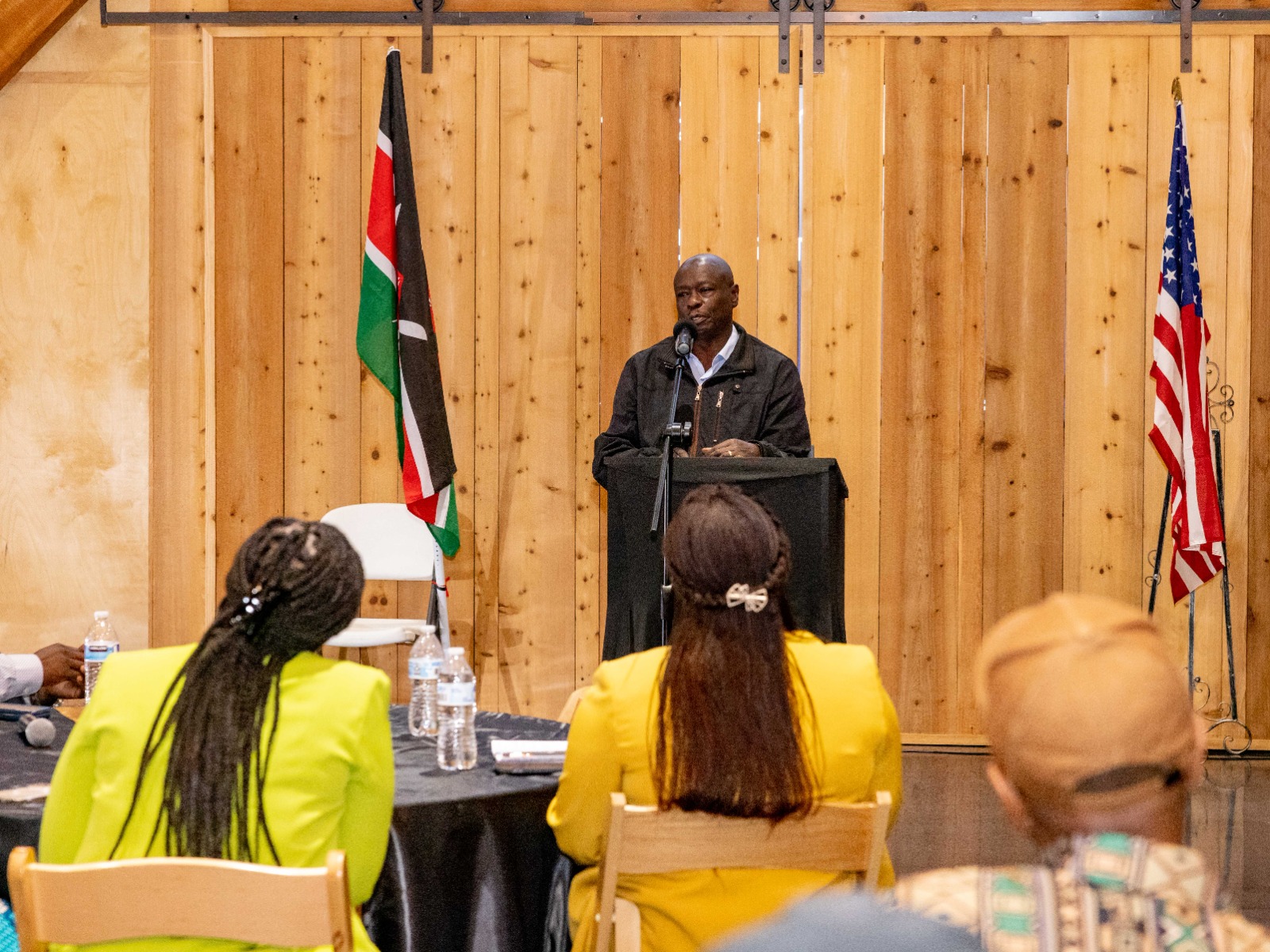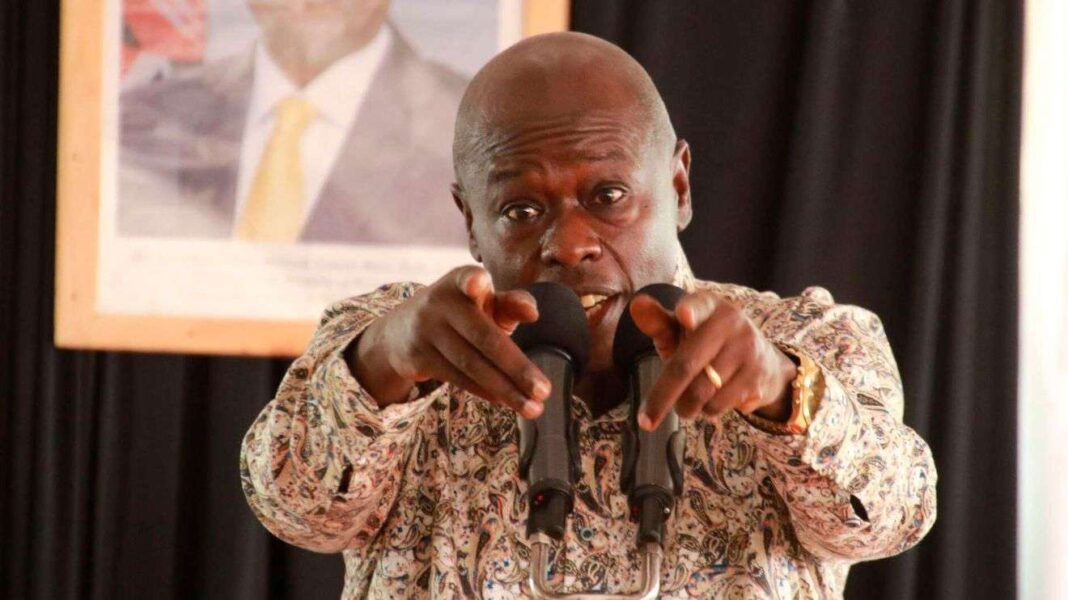Rigathi Gachagua has taken his politics across the Atlantic, using a town hall meeting in California to urge Kenyans in the diaspora to reject the Central Bank of Kenya’s new remittance data collection exercise.
In doing so, he has reignited debate about whether Kenya’s politics has sunk to a new low, or whether his attacks on the CBK simply reveal that he has no clear agenda for developing the country.
His rallying cry risks pitting diaspora communities against government policy at a time when remittances remain one of Kenya’s most critical sources of foreign exchange.

Gachagua Uses US Tour to Undermine CBK Diaspora Remittance Survey
The Deputy President, currently touring the United States, told Kenyans abroad that the CBK’s recently launched Remittances Household Survey is “ill-intended” and “intrusive.”
Speaking in California on Saturday, Gachagua accused President William Ruto of directing the CBK to “go to your homes to get the value of your remittances to determine how much money you send.” He painted the survey as a backdoor scheme to impose new taxes on funds sent home by Kenyans abroad.
“You guys have already paid tax; you are helping your kin because of failed systems,” Gachagua told the gathering. He urged diaspora communities to instruct their families back home not to share such details with CBK officials.
The CBK launched the exercise last week, describing it as a nationwide data collection programme to gather information on the amounts sent, how the funds are used, and the challenges recipients face. Officials say the information will shape policies to boost remittance flows, improve money transfer systems, and better serve recipients.
Yet Gachagua dismissed this policy goal entirely, claiming the government is targeting hardworking Kenyans abroad to make up for its domestic economic failures. “That is being too intrusive. We do not want too much government in people’s lives,” he said.
The Numbers Show Remittances Are Too Big to Politicise
In 2024, Kenya recorded Ksh666.7 billion in remittances—equivalent to 4% of GDP—up from Ksh586 billion in 2023. These funds have long been the country’s top source of foreign exchange, outpacing exports of tea, coffee, and tourism earnings.
The CBK argues that understanding how households use remittance income can help create incentives for investment, lower transfer costs, and develop more efficient financial channels. The survey will also collect data from all international remittance service providers, giving policymakers a complete picture of this crucial economic lifeline.
Gachagua, however, framed the move as an attack, telling the diaspora, “If Ruto wants to know how much money you send home, he should come here and talk to you. Do not torment our parents and our people back at home.”
By ignoring the potential benefits of the data collection, the Deputy President is turning an economic policy tool into a political wedge issue—one that could undermine the credibility of the CBK’s work both locally and internationally.
Is This Leadership or a Lack of Development Agenda?
The bigger question is why Gachagua would openly incite defiance against a central bank exercise designed to strengthen Kenya’s economy. Critics argue that this is not about defending the diaspora but about creating political theatre.
Gachagua promised that if his political side wins power, it would replace the survey with a diaspora infrastructure bond—a financial product enabling Kenyans abroad to invest their remittances and earn returns. But his claim raises a glaring legal and political reality: impeached politicians are barred from holding public office for ten years. Given that Gachagua faces past accusations of gross misconduct and abuse of office, many question whether he could even appear on the ballot.
By promoting a policy proposal he cannot legally implement, he risks misleading the very communities he claims to champion. It plays into a broader strategy of positioning himself as a victim of the current regime while diverting attention from his own record.
Politics at the Expense of Economic Policy
Kenya’s diaspora has long been recognized as an economic powerhouse, not a political pawn. Turning them against a policy meant to streamline and enhance remittance flows could ultimately hurt the very people Gachagua claims to protect.
His approach mirrors a familiar pattern in Kenyan politics—weaponizing legitimate concerns to score short-term political points. Instead of engaging with CBK officials to ensure the survey addresses diaspora sensitivities, he has chosen to frame the initiative as an attack, fostering mistrust between the diaspora and state institutions.
In doing so, Gachagua risks more than just derailing a survey. He risks setting back the broader goal of integrating diaspora capital into Kenya’s long-term economic strategy.
The CBK Diaspora Remittance Survey is not about taxing Kenyans abroad; it is about understanding the scale and impact of remittance flows to design better policies.
By urging resistance instead of dialogue, Gachagua has shown that, for some politicians, political survival comes before national development.


